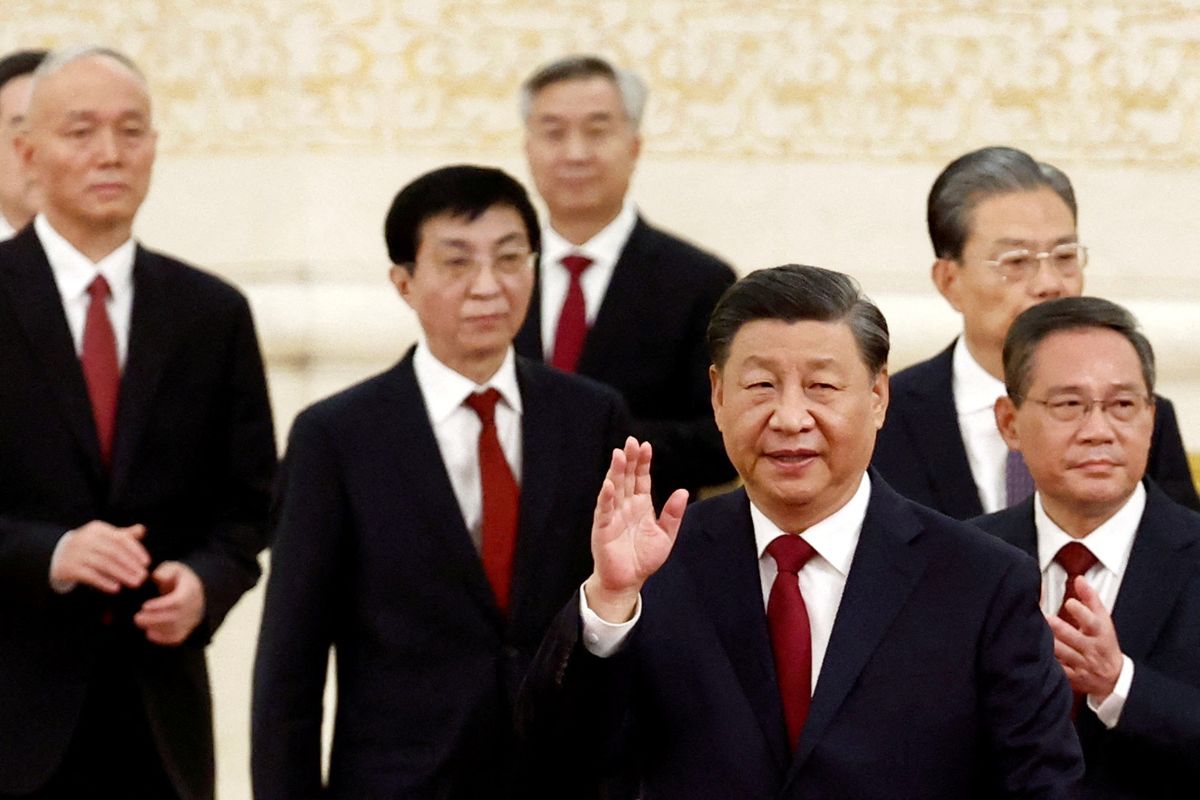For the first time in 25 years, there are no women on China’s Politburo

A few minutes every morning is all you need.
Stay up to date on the world's Headlines and Human Stories. It's fun, it's factual, it's fluff-free.
This past weekend, China’s CCP Congress ended with announcing the new lineup of the Party’s 205-member Central Committee, 24-member Politburo and the most powerful seven-member Politburo Standing Committee, which is basically like a presidential cabinet. These three groups are responsible for making policy decisions and essentially overseeing how China is run for the next five years.
But this year is different. Did you notice that the newest Politburo is packed with only men? Breaking with tradition, this is the first time in 25 years that no woman is serving on the second most powerful committee.
The sole female on the last Politburo, Sun Chunlan, was the COVID czar. However, Sun has stepped down, having exceeded the usual retirement age. Although two women were pegged to be her potential successors, they instead ended up on the larger Central Committee, where women took just 11 of 205 seats. Although this is the first time there’s been no female representation since 1997, only eight women have ever made it onto China’s Politburo, and several of them were the wives of top leaders. No women have yet served on the Standing Committee.
Key comments:
“We will remain committed to the fundamental national policy of gender equality, protect the lawful rights and interests of women and children and promote all around development initiatives for people with disabilities,” President Xi said at the opening of the 20th CCP Congress.
“This suggests Xi is far more interested in consolidating his power base by staffing the Politburo with his protégés and supporters than giving female representation,” said Lynette Ong, professor of political science and China scholar at the University of Toronto. “China has taken a step backward in advancing women’s political representation and rights,”
“There is no hard and fast rule that obliges the party to appoint a female member,” said Valarie Tan, an analyst at the Berlin-based Mercator Institute for China Studies. “The Chinese Communist Party’s commitment to women’s rights I think is more like a commitment to advance women’s economic rights,” said Minglu Chen, a senior lecturer at the University of Sydney. “It’s really about: ‘women should join the paid labor force.'”
“The CCP is still quite traditional when it comes to women at the very top. Recent crackdowns on feminist activists have further signalled a more traditionalist and conservative line,” said Mary Gallagher, professor of democracy, democratization and human rights at the University of Michigan.




Comments ()